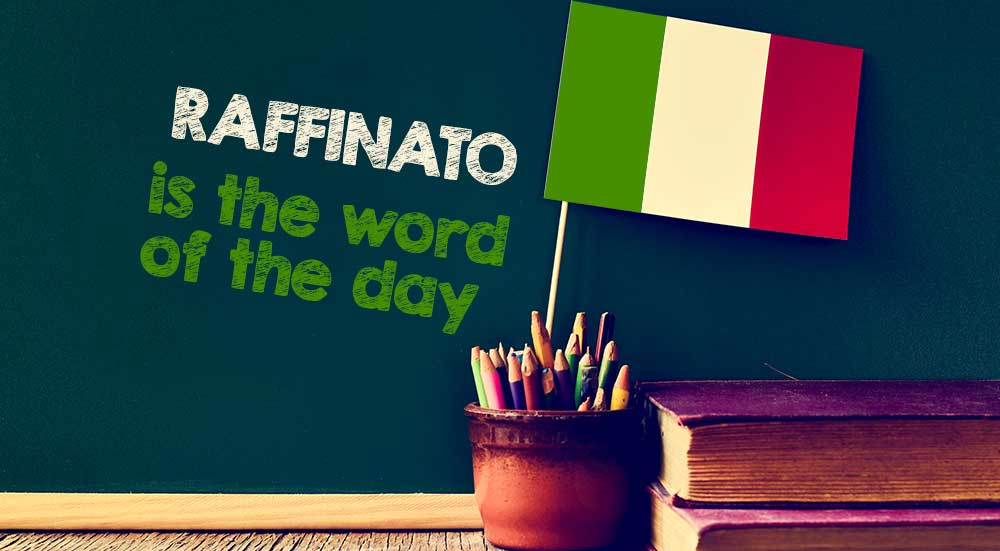Today’s word, raffinato(rahf-fee-nah-toh) truly embodies elegance, sophistication, and a touch of luxury.
Raffinato was first attested as an adjective (so it has a feminine and plural form, too) in the 16th century, and comes from the Italian verb raffinare, which appeared in our vocabulary some three centuries earlier, as a derivative of the word fine, “fine.”
Raffinare means “to refine” or “to make more refined,” so raffinato, literally, means “something that has been refined.” This is why you can find it in sentences like, Se si vuole mangiare sano, non si dovrebbero usare ingredienti raffinati, which translates as: “If you want to eat healthily, you shouldn’t use processed ingredients” — which is the mantra of Italian cuisine, right?
But here comes the twist!
Take a look at this sentence: questo piatto è delizioso, è fatto con ingredienti molto raffinati (“this dish is delicious, it’s made with very sophisticated ingredients”). Here, our raffinato has a different meaning, a pretty positive one. While the first meaning I gave you is common, you are more likely to find raffinato used in the second context, with the meaning of “refined,” “elegant,” “sophisticated,” or “cultivated.”
You can use it to refer to tastes, manners, art, design, and culinary experiences that are characterized by subtlety, elegance, and sophistication. So, don’t forget that raffinato is not just about luxury but also about having an appreciation for the finer details in life, for all those particulars that can turn an ordinary experience or object into something amazing.
- La cucina italiana è famosa per i suoi sapori raffinati e la sua presentazione elegante
- Italian cuisine is famous for its refined flavors and elegant presentation.
- Questo ristorante è noto per il suo ambiente raffinato e la cucina di alta qualità
- This restaurant is known for its refined atmosphere and high-quality cuisine
- La mostra d’arte presentava opere raffinate di artisti contemporanei italiani
- The art exhibition featured refined works by contemporary Italian artists




























